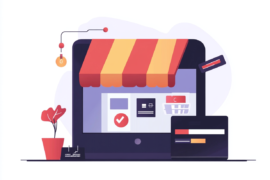This article may contain references to products or services from one or more of our advertisers or partners. We may receive compensation when you click on links to those products or services. Nonetheless, our opinions are our own.

Updated by Albert Fang
Owning a business can be a huge milestone for anyone, considering the many advantages it comes with. However, getting a small business up and running is never a walk in the park. The whole process can be overwhelming, not to mention the costs involved.
But these are not reasons that should deter you from realizing your dream. Here is how to get things done.
1. Do a Lot of Research
The market space has evolved greatly over the years, spawning a ginormous bunch of possibilities out there. Before launching your small business, it pays to carefully conduct research on the products to push, who to reach, and how to improve your services.
In the research process, take account of the risks that can slow down your progress. You can conduct your research both online and offline to come up with a conclusive decision.
2. Decide On Your Business Structure
When starting a small business, the structure you choose will have a profound effect on your startup costs, paperwork, taxes, liabilities, operational responsibilities, funding, and so much more. This is why choosing the right entity is a critical step in starting a new small business.
Depending on what you’re selling, your target market, and the funds available to you, below are some of the most common business structures you can choose from:
Sole Proprietorship:
Sole proprietorships are often easy to form as they require less monetary input and involve minimal paperwork. They also provide the owner with total control over the business, but funding options can be limited.
On the downside, a sole proprietorship may not be the best entity if you want to keep your personal assets protected.
Forming an LLC
Limited Liability Companies come with many benefits. For instance, the business structure ensures that the owner’s personal assets are protected from liabilities involving the business. They also provide tax advantages and often have multiple funding options available to them.
Perhaps the best perk is that they are fairly easy to form and get operations in motion. But starting one also comes with several requirements.
If you’re starting an LLC, then you’ll need a registered agent to be in charge of your paperwork and official business communications with the state.
It’s one of the prerequisites even before you create your Articles of Organization or operational agreement. It’s a huge determinant of whether or not you receive the certificate of incorporation from your local business authorities.
Consider a Partnership
With business partnerships, you have the benefit of bridging the gap in knowledge and expertise.
Additionally, there will be more business opportunities, a balanced worklife, moral support, and sharing of expenses. Profits will also be shared amongst the partners as per the partnership agreement signed by the parties.
3. Compliance/Licensing
Whatever the size of your business, you need to ensure that you are compliant. Having proper licensing allows your business to come out as legitimate.
Maintaining compliance and having proper business documentation can help you minimize costs, avoid paying hefty penalties, and allow you to operate your business with some peace of mind.
4. Open a Business Account
Separating your personal finances from your business account is a welcomed approach. This will help you know how much you are spending and how much is coming in.
There are also banking tasks that might include accepting payments from clients, paying your task force, and making payments to suppliers. Oftentimes, a business account also helps open up possibilities for taking up a business loan when you need to stay afloat.
5. Strategize on Marketing
Targeting the right customer audience will be key when it comes to sourcing just the right products. In simpler terms, if you know who to sell to, then it will be easy to come up with the best suitable products as well as come up with ways to reach the consumers.
And in today’s digital world, you have social media as your cheapest marketing tool. Additionally, make sure to invest in a business website that’s optimized to attract both organic and inorganic traffic.
6. Find the Best Location
A strategic location for your business start-up means that you’ll be exposed to the right clients. This is a fundamental asset that you must hone onto, regardless of the products you are selling.
If you are focusing on growth, then the size of your business shouldn’t matter. But of course, there are considerations to put into account, such as has been mentioned. This will be a phase that will help you grow financially.

Reviewed and edited by Albert Fang.
See a typo or want to suggest an edit/revision to the content? Use the contact us form to provide feedback.
At FangWallet, we value editorial integrity and open collaboration in curating quality content for readers to enjoy. Much appreciated for the assist.
Did you like our article and find it insightful? We encourage sharing the article link with family and friends to benefit as well - better yet, sharing on social media. Thank you for the support! 🍉
Article Title: 6 Steps You Need to Take to Start a Small Business
https://fangwallet.com/2022/07/13/6-steps-you-need-to-take-to-start-a-small-business/The FangWallet Promise
FangWallet is an editorially independent resource - founded on breaking down challenging financial concepts for anyone to understand since 2014. While we adhere to editorial integrity, note that this post may contain references to products from our partners.
The FangWallet promise is always to have your best interest in mind and be transparent and honest about the financial picture.
Become an Insider

Subscribe to get a free daily budget planner printable to help get your money on track!
Make passive money the right way. No spam.
Editorial Disclaimer: The editorial content on this page is not provided by any of the companies mentioned. The opinions expressed here are the author's alone.
The content of this website is for informational purposes only and does not represent investment advice, or an offer or solicitation to buy or sell any security, investment, or product. Investors are encouraged to do their own due diligence, and, if necessary, consult professional advising before making any investment decisions. Investing involves a high degree of risk, and financial losses may occur including the potential loss of principal.
Source Citation References:
+ Inspo




























![How to Hire Fintech Software Developers [Cost & Factors] fintech software engineers](https://fangwallet.com/wp-content/uploads/2025/03/fintech-software-engineers-270x180.png)















